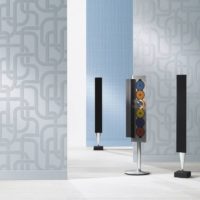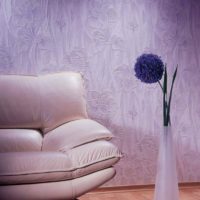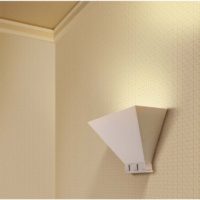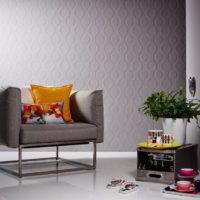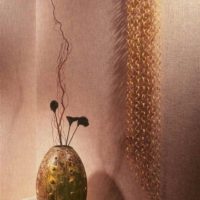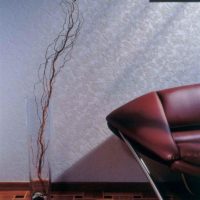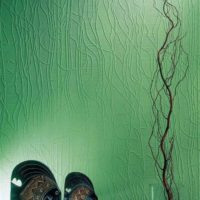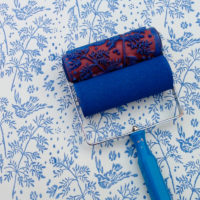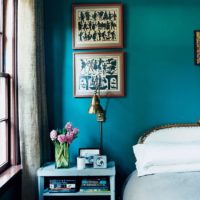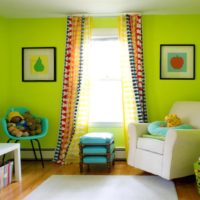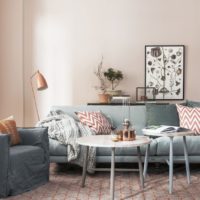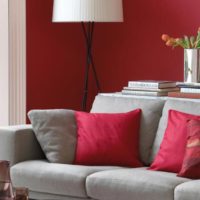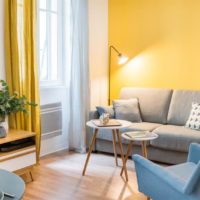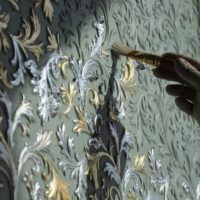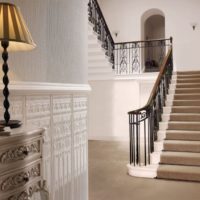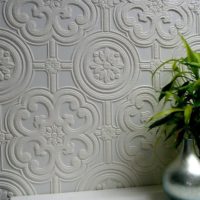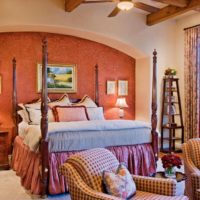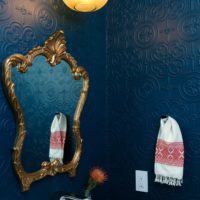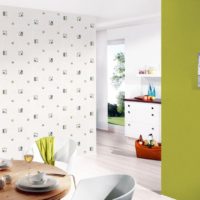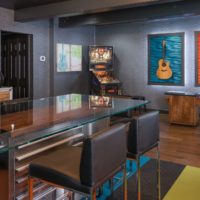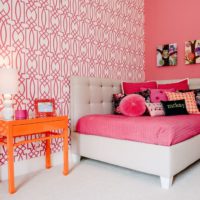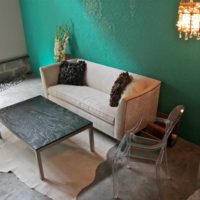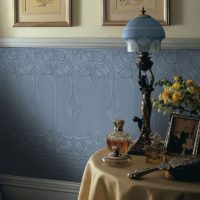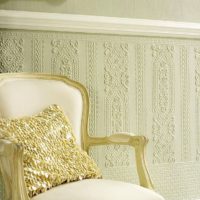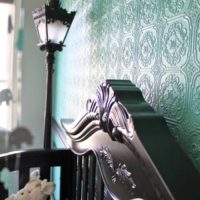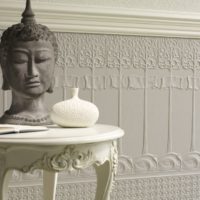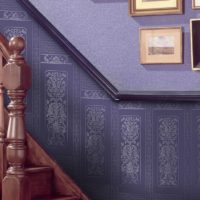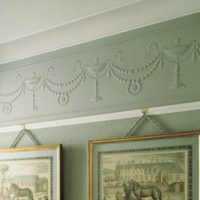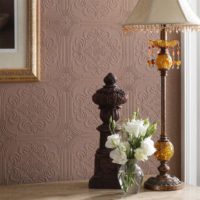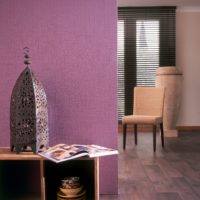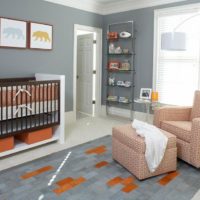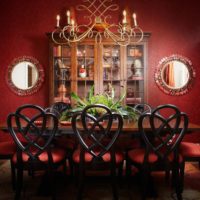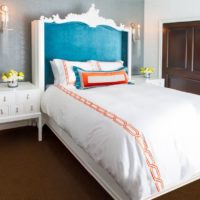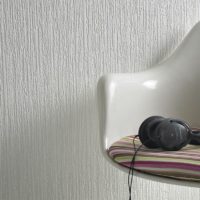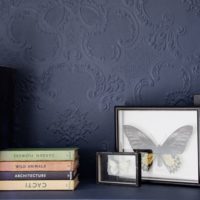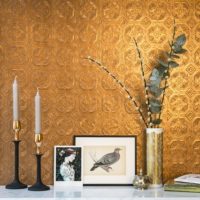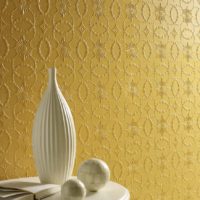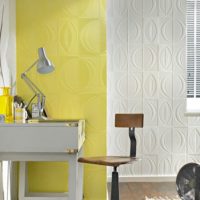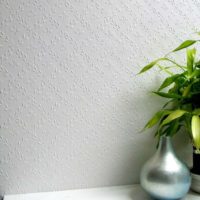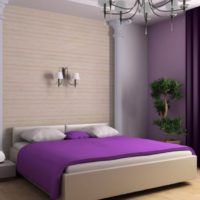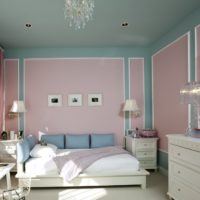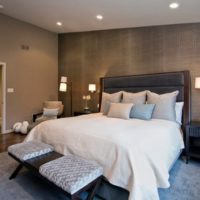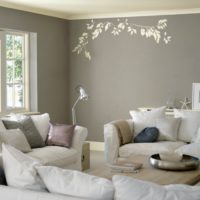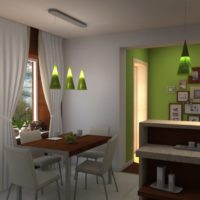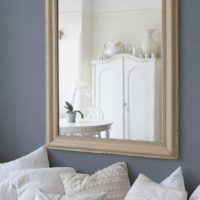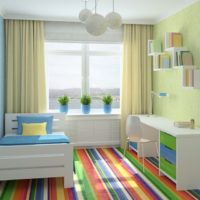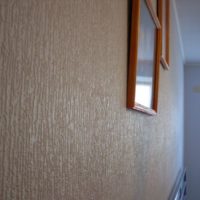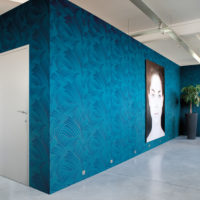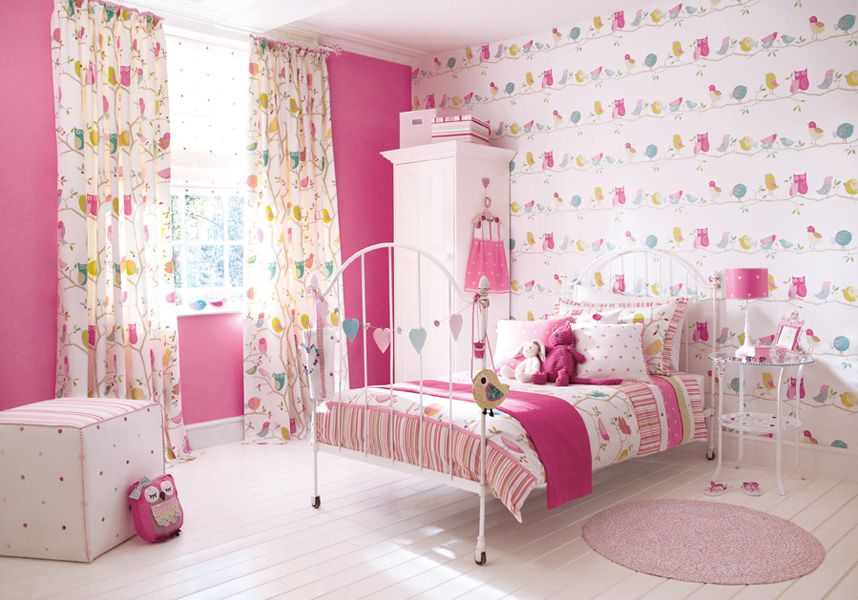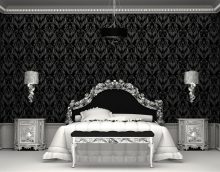Wallpaper for painting in the interior: features of choice
Those who often have to re-stick wallpaper due to sketches of small “artists” and tailed pet marks probably dreamed of rolling it all up with a paint roller. But the problem is that we need wallpaper for painting in the interior, and not those ordinary paper rolls that get wet and fall off the walls. And although a suitable type of coating has been developed and implemented for a long time, many by inertia go to construction supermarkets for ordinary paper rolls before the upcoming repair. It is time to get out of this vicious circle - to make repairs at a lower cost. Textured wallpaper for painting is a great way to diversify the look of any room.
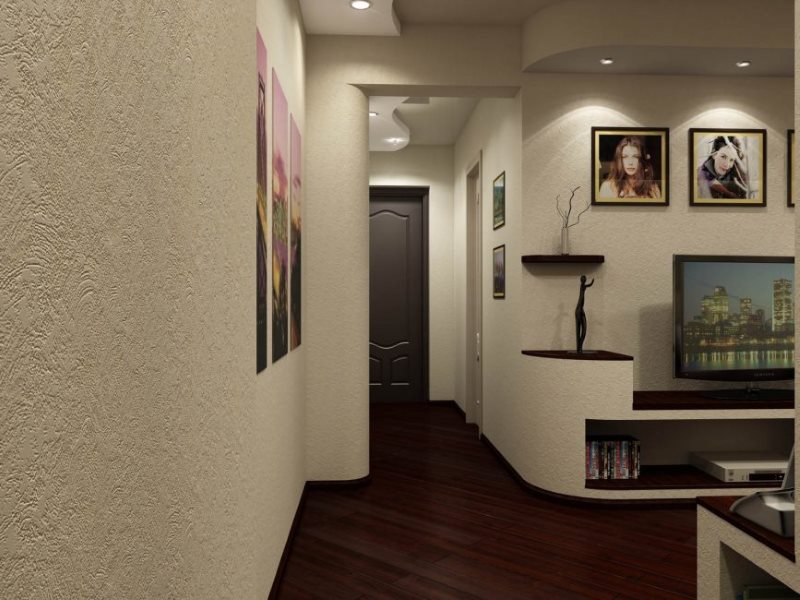
Wallpaper for painting - a special type of decoration that allows you to create a unique interior
Content
- 1 Why choose wallpaper for painting?
- 2 Properties of paint rolls
- 3 Useful Tips
- 4 Designer wall color combinations
- 5 What material is better for painting wallpaper?
- 6 Varieties of colors for wallpaper
- 7 Video on how to stick wallpaper for DIY painting
- 8 Photo of beautiful interiors with wallpaper for painting
Why choose wallpaper for painting?
In recent years, there has been a design trend of moving away from ordinary paper rolls for pasting in favor of coloring the room. Often this is done in various ways, including two-color and multi-color coloring (of one or all surfaces), as in the photo-example of the design of painting walls.
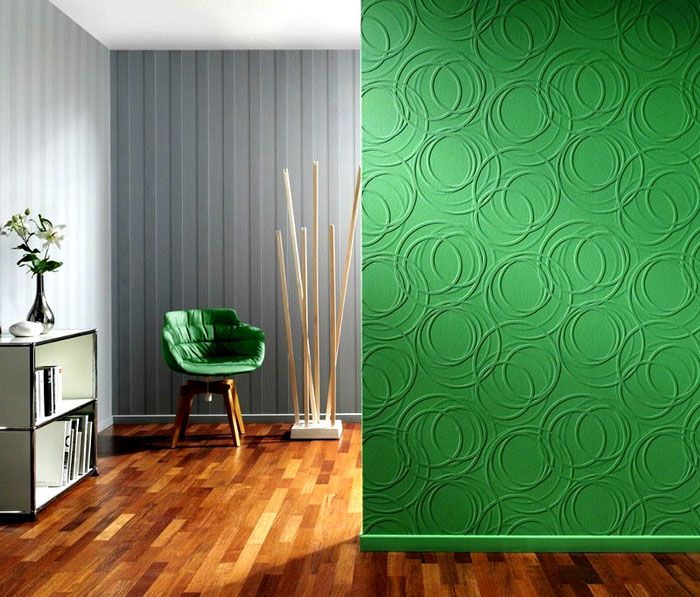
Wallpaper for painting looks great in the interior due to its embossed texture
Conservative people like the classic interior, which has not changed for decades, others like the frequent change of appearance of the living space. But sooner or later everyone has to make repairs to their house or apartment, and the question arises of covering the walls. Neatly painted walls in the interior are the fastest way to transform a room, especially when there is no time and money for major repairs.
For painting, you need an ideal wall surface - vertical, without defects and bumps, after removing the old coating and full alignment. This involves professional plastering with start and finish putty, followed by double priming. Only in this case can we expect that the walls will be smooth, suitable for coloring. But they will be without a textured pattern.
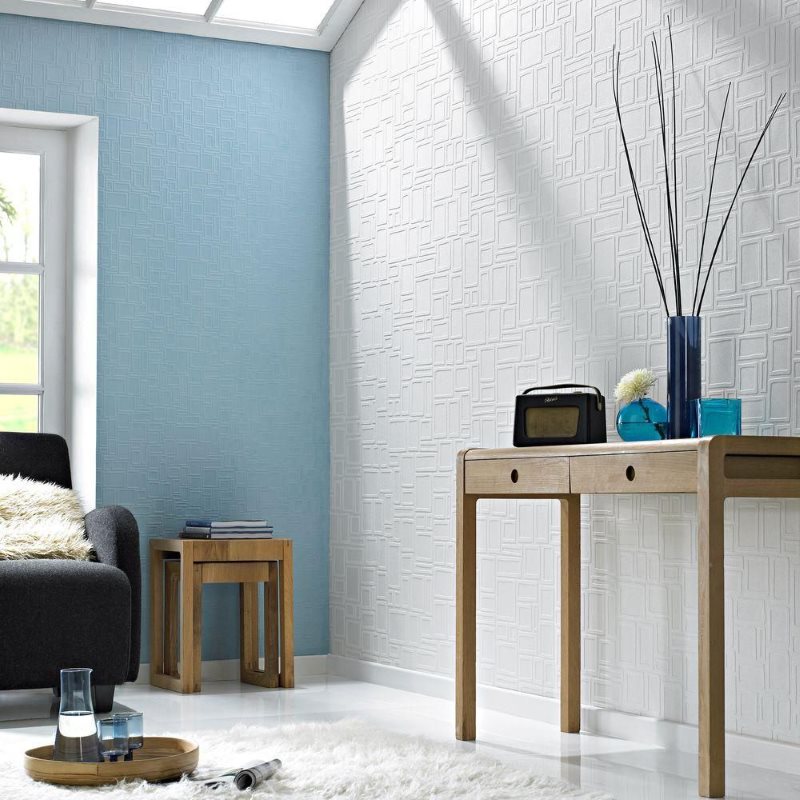
At any time, the color of the walls can be changed quickly, and with minimal cost.
Of course, you can do decorating with special plaster. But an interior with painted walls on top of a hand-painted embossed finish is a laborious process that requires skill.
Important! Rolled materials for painting, regardless of the base material, are intended for repeated dyeing. A small drawing will not lose its beauty in 3-4 color changes, walls with embossed ornaments are repainted up to 5-7 times.
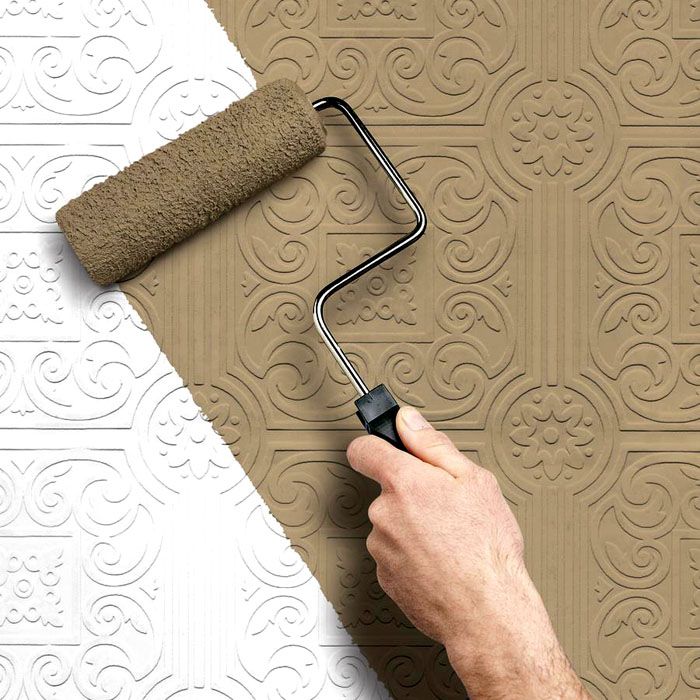
The wall covered with wallpaper for painting can be repainted several times
Another question, what color to paint the walls? Each has its own preferred shade, but it is not always appropriate for this furniture or in the chosen style of the interior. In addition, each of them has its own subconscious perception and influence on the psyche. One palette activates, the other calms, there are colors "healing" and tiring, even annoying.
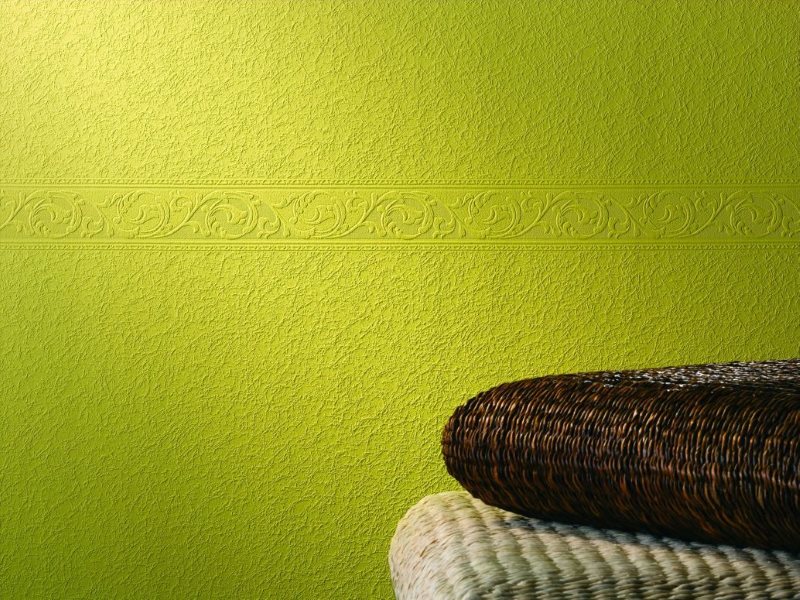
Painting wallpaper looks very impressive
Tip. Those who own design programs can use the color fill method to check the look of their room.
A proven option is to choose some blurry pastel tone for the walls.It is applied by roller on the wallpaper for painting - the design options for the relief of the rolls themselves are chosen to your taste:
- textured;
- smooth;
- patterned.
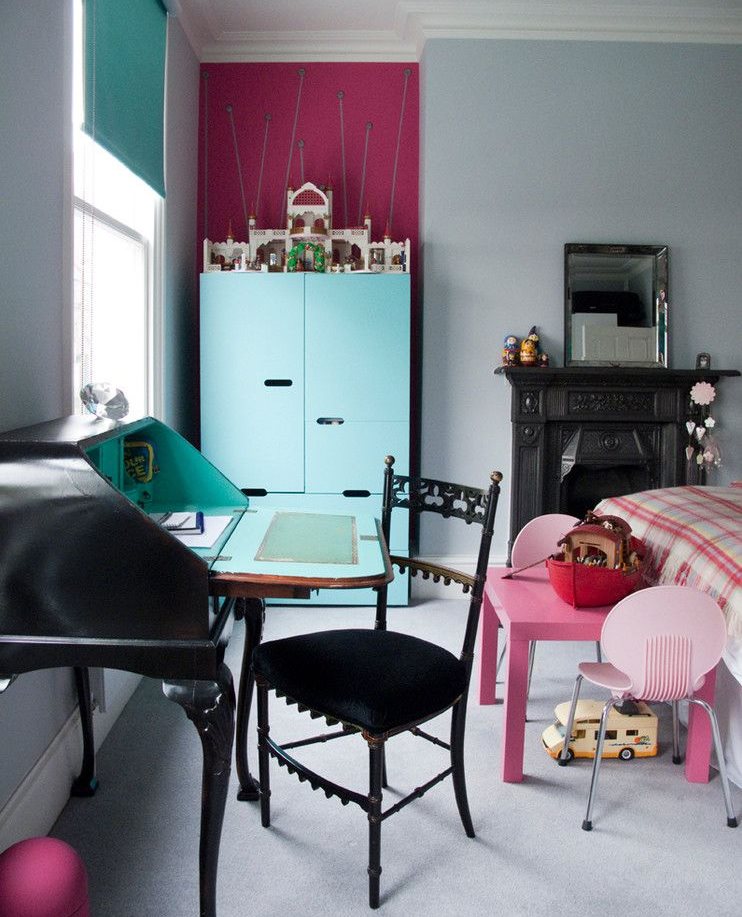
Some people choose smooth wallpapers because they cannot determine the ornament. In this case, they will have the opportunity to show imagination and depict their ideas on the walls.

An interesting combination of painting wallpaper with a different structure
Under the relief pattern does not require perfect alignment. This is an excellent way of processing walls in panel new buildings, it is enough to putty the seams and joints of wall blocks and cover with a primer. The good thing is that you can vary the design of painted walls, including painting with niches, “panels”, colored blocks or drawing a picture in the form of graffiti and abstraction.
Properties of paint rolls
Good wallpapers for painting change not only the design. Fiberglass coating will improve the microclimate and provide sound insulation. They are not as cold to touch as paper, like ordinary painted walls.
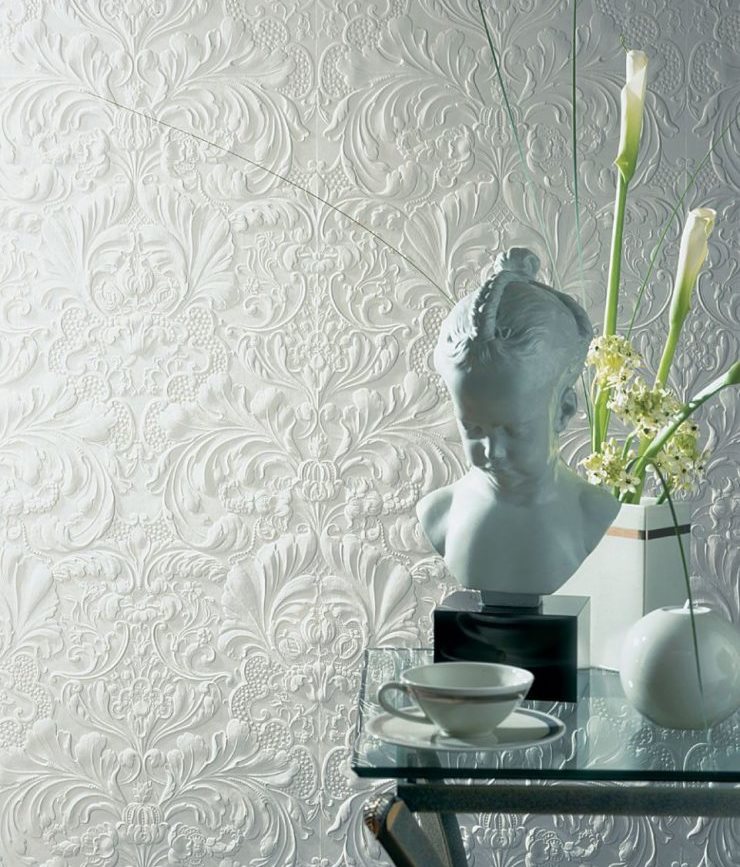
Textural wallpapers cover small bumps in walls and ceilings well
Attention! Woven-based rolls are incompatible with the pranks of cats and dogs. In places where they are used to sharpening claws, wallpapers will quickly lose their original appearance - use a false gun.
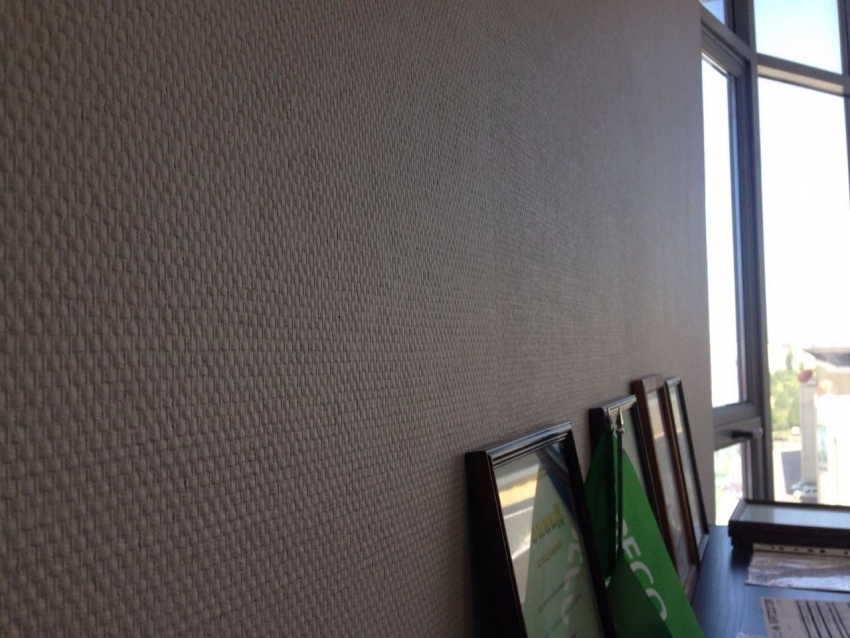
Fiberglass-based wallpapers are the least susceptible to abrasion, which is why they are used in public places and in hallways
In an emergency, you can correct the scratched surface with gypsum plaster and paint over. Therefore, it is advisable to leave a little paint for the future - to correct defects.
The good news is that such a base is easy to remove if a decision is made on a different finish during the next repair. The denser the rolls, the greater the ability to remove them whole. Some manage to take off the paint and use embossed wallpaper for painting in the dressing room, on the balcony, in the pantry or toilet. But this is the case if water-dispersion-based paint was used, and not latex, acrylic or silicone.
Due to the relief, the walls do not look dull or faceless. But the color can be changed seasonally - blue for the winter and salad for the spring-summer season. Only at the next repainting, it is desirable to choose a darker shade, so as not to shine "bald spots" through a new layer. For the next update, it is enough to work out the surface with a roller.
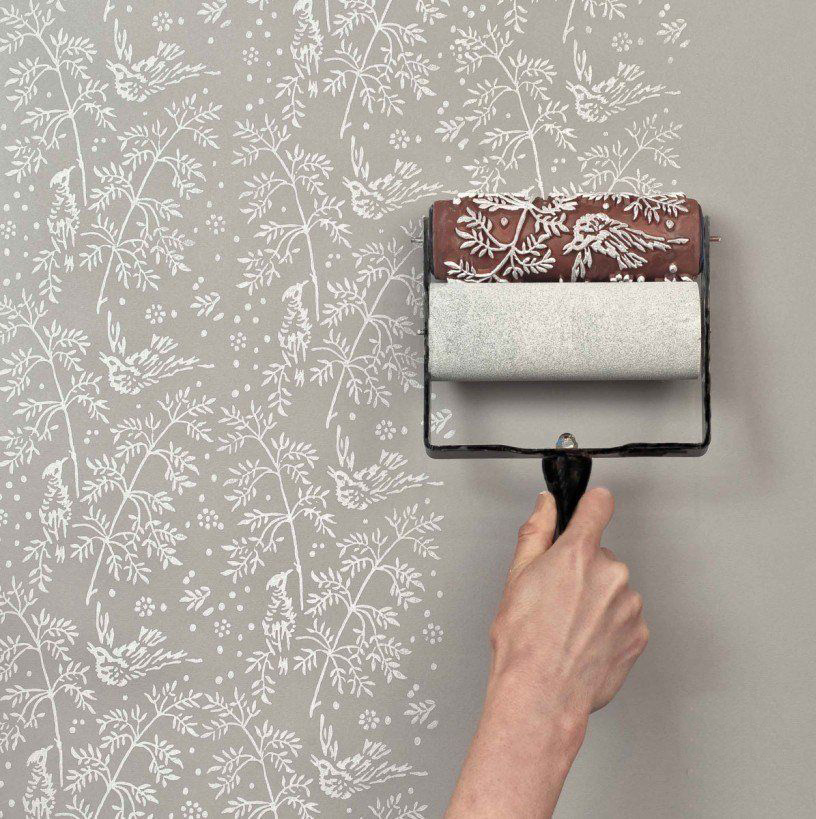
Beautiful patterns can be created using special rollers with stencils
Tip. It is better to paint in different directions, first apply vertically, then horizontally, to "whiten" the layers of paint. If the color is the same, it is better to dilute the paint thinner, for the convenience of work. Paint the dark base with a thick solution.
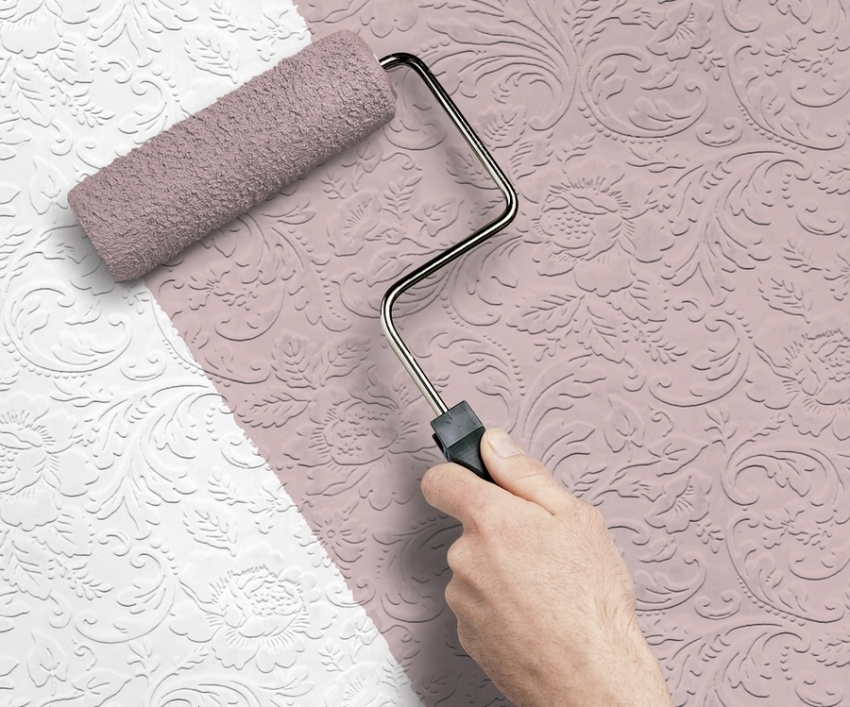
It is better to paint in different directions
When working indoors, safety is important. There are special interior eco-paints that do not give toxic fumes. This is especially important when working in the children's room or bedroom of allergy sufferers and asthmatics.
For the quality of wall treatment at all stages, it is important to comply with the technology. This is the preparation of walls and rolls for pasting and staining, the preparation of a coloring solution.
Attention! The less visible the joints on the wallpaper, the more accurate the dye will be. Wide rolls are more difficult to glue, but fewer seams, which will ensure flawless operation for many years.
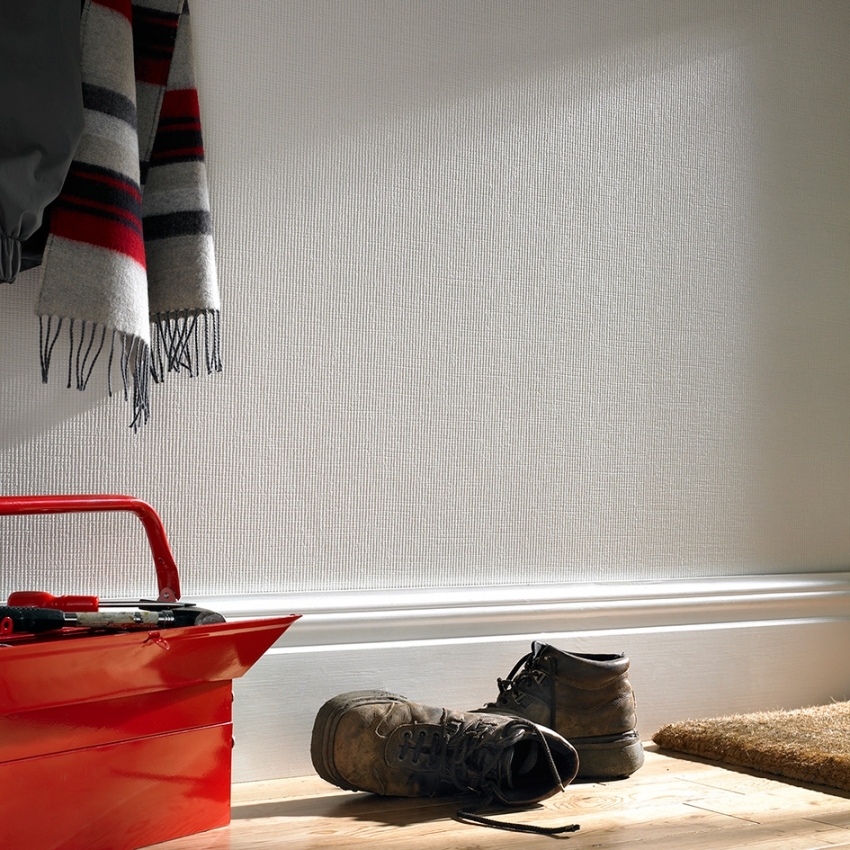
The life of the wallpaper largely depends on the basic surface preparation.
Some varieties of paint are diluted with pigment or color for a certain shade, while the base is white. This is convenient when a combination of wallpaper and wall painting is selected in the interior of adjacent rooms. The beige entrance hallway is adjacent to the coffee with milk lounge, opal bedroom and caramel kitchen. To save on all walls, they buy one paint, diluting the containers with different pigment.
Useful Tips
In order not to be mistaken with the choice of gamma when painting walls, consider important nuances.
Classic combinations:
- a combination of closely related colors - 2 neutral, 2 cold, 2 pastel or 2 warm;
- contrasting colors;
- shades or gradient blending into each other.
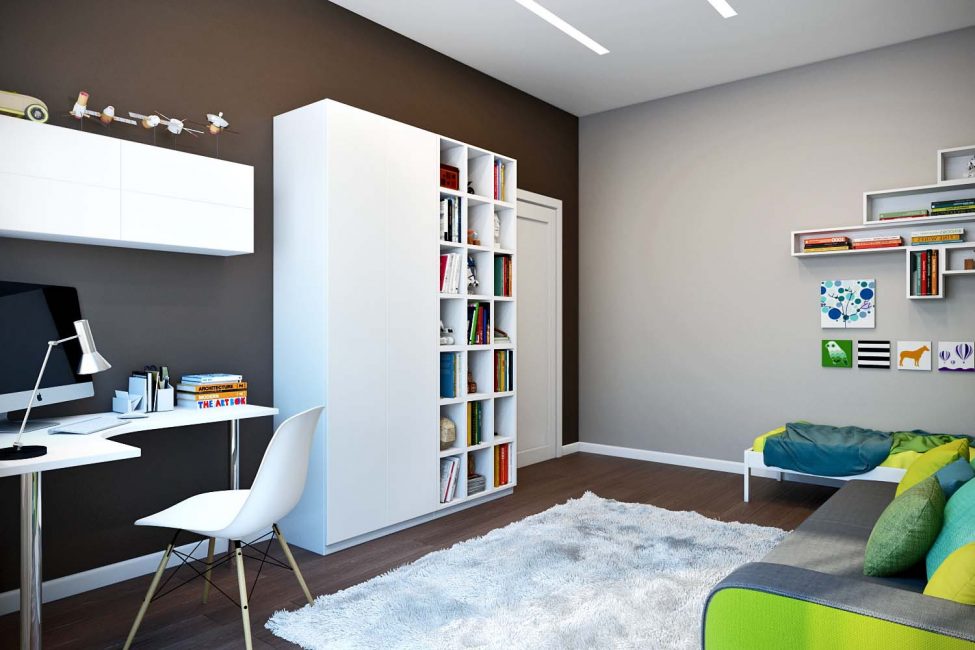
Interior of a children's room in restrained shades
Proper design of the borders of color blocks, which is difficult to achieve without special devices. If it turned out messy, the joint is supplemented with overhead elements or moldings:
- border tile;
- wooden slats;
- corner and planks made of plastic;
- narrow mirror, wooden and polymer inserts.
Such elements can be easily fixed with “liquid nails”, tenacious construction glue, for example, on a silicone base, or with special holders.
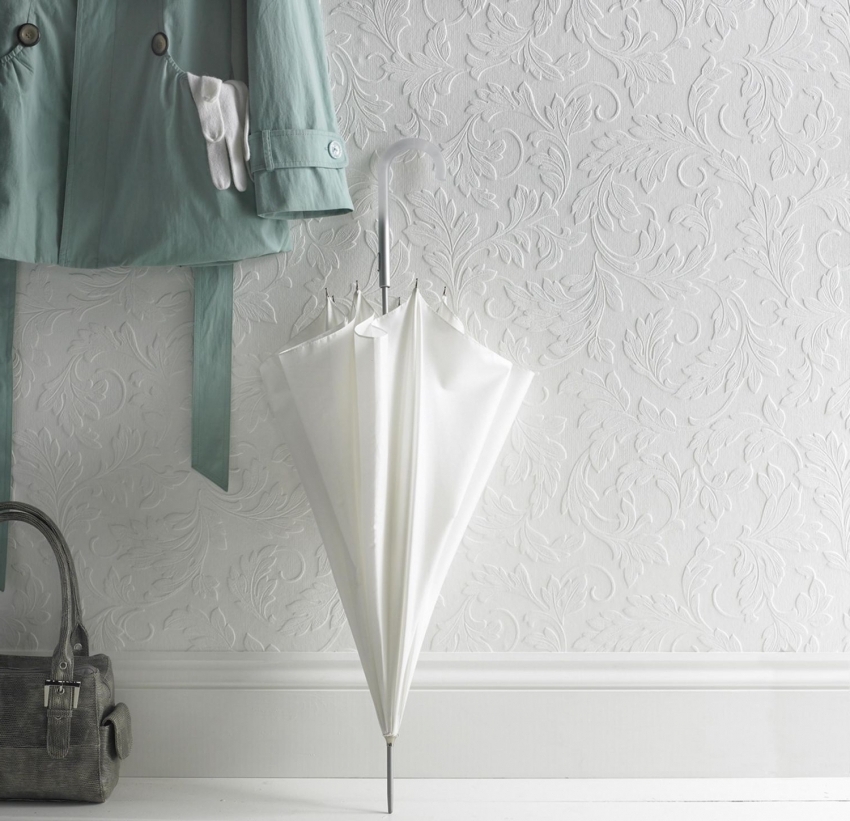
Large textured wallpaper decor is suitable for spacious rooms
We stock up paint or pigment. Shade experiments are good when you can add something. Often the desired tone is missing, especially if the order was carried out according to the catalog. Damage to the surface is easily repaired with a roller if there is exactly the same paint. With other components, it is difficult to obtain the required analogue.
Designer wall color combinations
- Color inserts are a popular colorization method in interior design (we apply marking, apply masking tape along the border of painted wallpaper, modify the surface in a different color) to place decor objects on the background of these blocks.
- Dividing the walls horizontally, decorating the panels with different colors, wide stripes at the baseboard or around the perimeter of the ceiling. The border can be supplemented with a baguette, border or molding suitable in style.
- Painting with a stencil or coast with a drawing. A great idea for decorating walls if you want to add a picture to a smooth or slightly structured surface. You will need a roller with nozzles for applying patterns.
- An author's drawing is also an option if you want to redesign the eating area in the living room or the wall at the head of the bed in the bedroom. For example, a sakura twig or hand-drawn hieroglyphs is a traditional Japanese style technique.
- Accent wall decoration is a favorite technique of many designers. This is a spectacular application for a stylish and fashionable interior with painted walls. Three walls are left neutral or background, one called for visually attracting attention. Against this background, you can place equipment, an antique collection, handicrafts, designer installations or works of art.
- A complex abstract or geometric pattern that can transform a room beyond recognition. The pattern can carry an independent semantic load or complement the overall design concept.
- Painting walls with wide stripes is a popular way to decorate large spaces. Only if it is a long corridor, then it is better to make stripes vertical. In a one-room apartment, divided by zoning, stripes can be combined. The texture of roll materials for painting can also be changed, alternating a smooth and rough field.
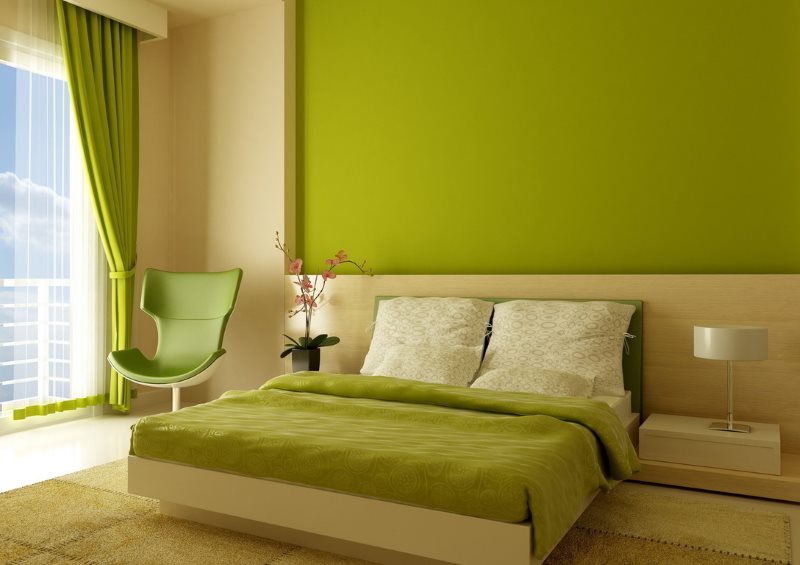
Designers use a simple division of surfaces into zones depending on their purpose. Highlighting occurs with color, texture or a combination of both tools.
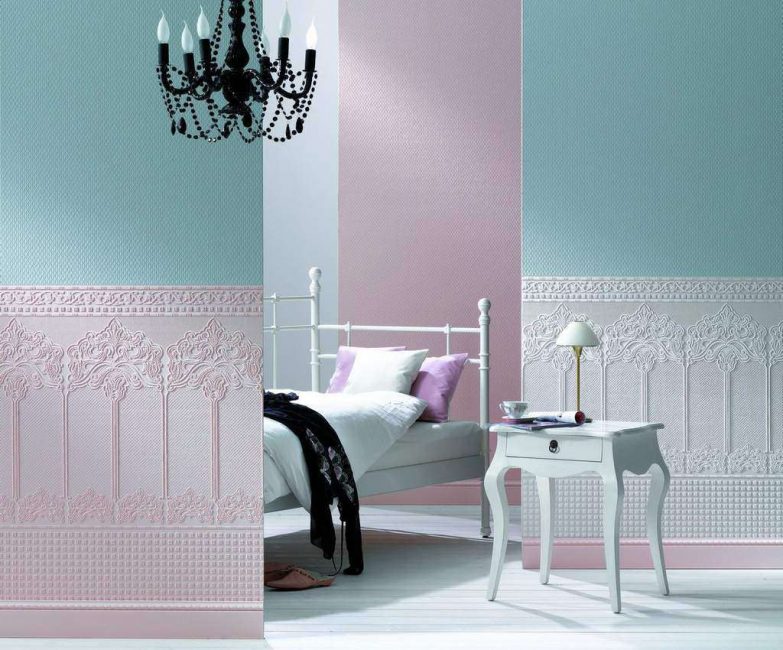
Combination of different colors
What material is better for painting wallpaper?
Only special wallpapers are suitable for painting, which does not harm the soaking when painting:
- paper, with special impregnation or vinyl coating;
- non-woven (non-woven textile from pressed viscose fibers);
- fiberglass (patterned or embossed) fiberglass.
As a rule, when buying, they choose only one type of wallpaper for painting in a residential interior.
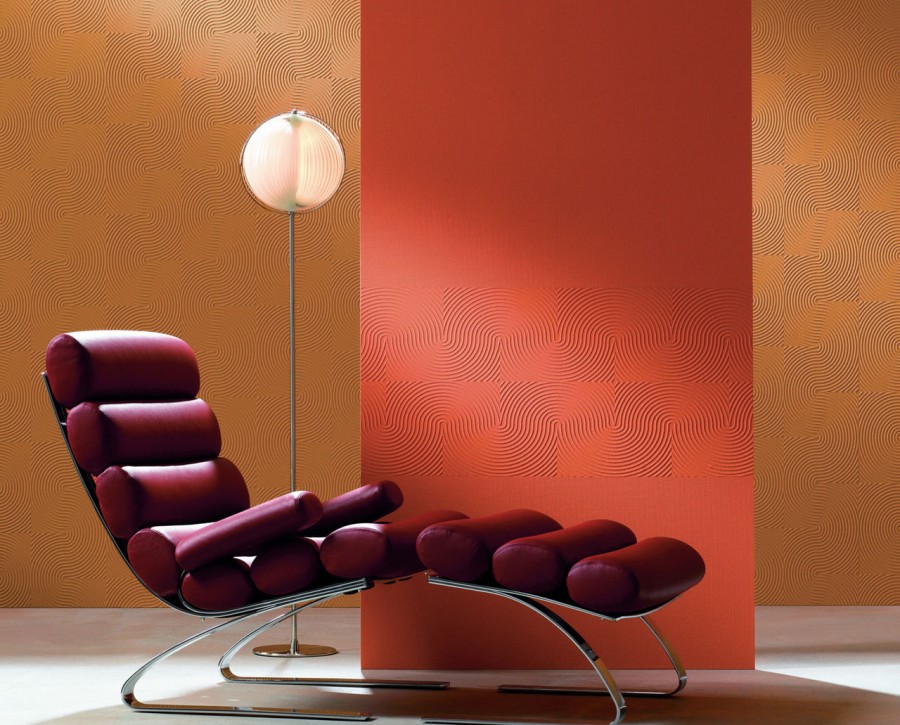
The price of wallpaper for painting depends on the material of manufacture and the availability of embossing
Table. The cost of wallpaper for painting
| 1. Paper | 95 - 135 g / sq.m. | 500 - 1000 rub. per roll |
| 2. Flizelin | 100 - 150 g / sq.m. | 700 - 1200 rubles. per roll. |
| 3. Fiberglass | 110 - 265 g / sq.m. | 900 - 1800 rub. per roll. |
Attention! Let the cover price not be confused, as this will result in significant savings, at least during the next 3-5 repairs. Costs will only be on paint.
The paper base with a vinyl coating for painting can be of different types - smooth, patterned, embossed and foamed. They are often used to decorate the ceiling, which is not in danger of flooding. This is a relatively economical type of modern finish, relatively multi-level designs and stretch linens.
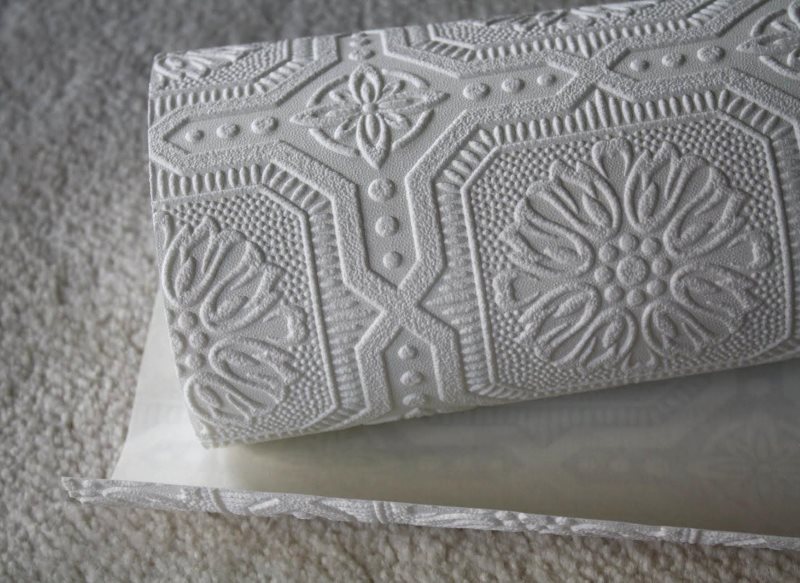
Paper-based vinyl wallpaper
Most often on sale you can find a traditional pattern:
- herringbone";
- rustic texture or matting;
- waves
- Rough or pimpled background.
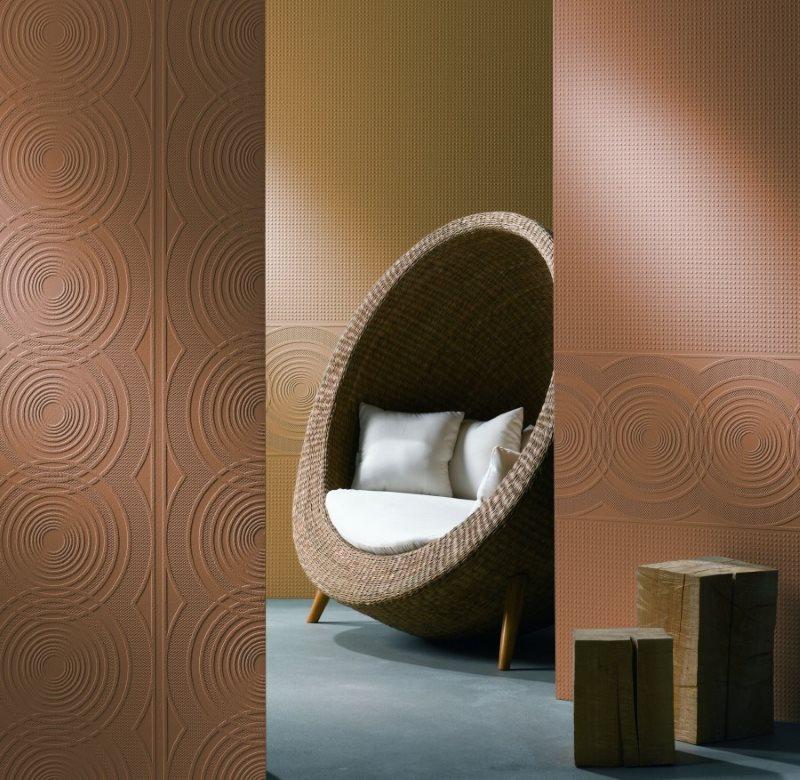
Textured varieties are among the most sought after
Important! Foamed vinyl is the most voluminous, but it is a great way to hide wall and ceiling defects. These obi look very noble, effectively combining with most types of finishes.
Linkrust is an innovative material on a natural basis, it includes cellulose and cotton fibers with various fillers. The surface looks like laminated or waxed, looks great in the design of walls for painting. They belong to eco-materials, therefore, they are quite valuable not only for the decoration of residential premises, but are suitable for offices, hotels, restaurants.
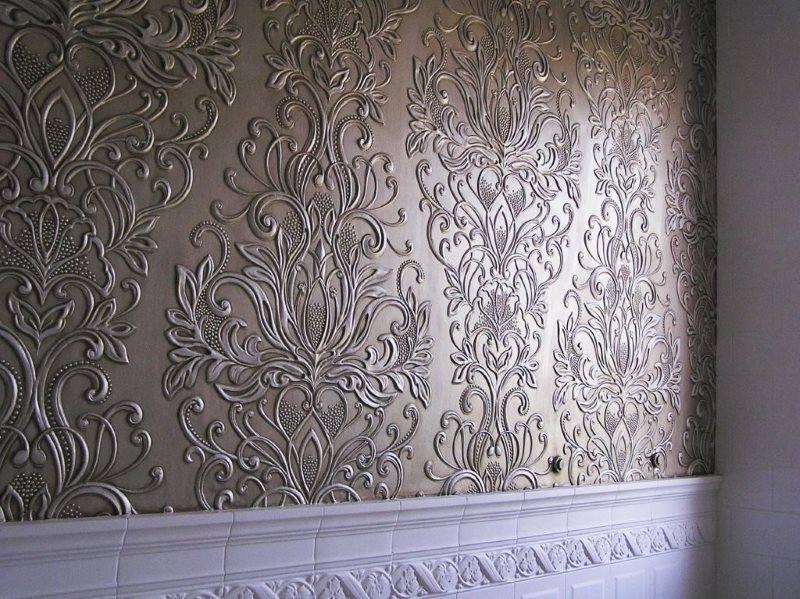
Linkrust wallpapers are considered to be an elite finishing material that retains its properties for decades.
Non-woven wallpaper is denser and stronger than paper, they are not afraid of getting wet. But they do not need to be moistened before application, only the wall is treated. This is very convenient when a surface is glued on 2 floors, for example, in halls, recreations or hallways of two-story cottages.
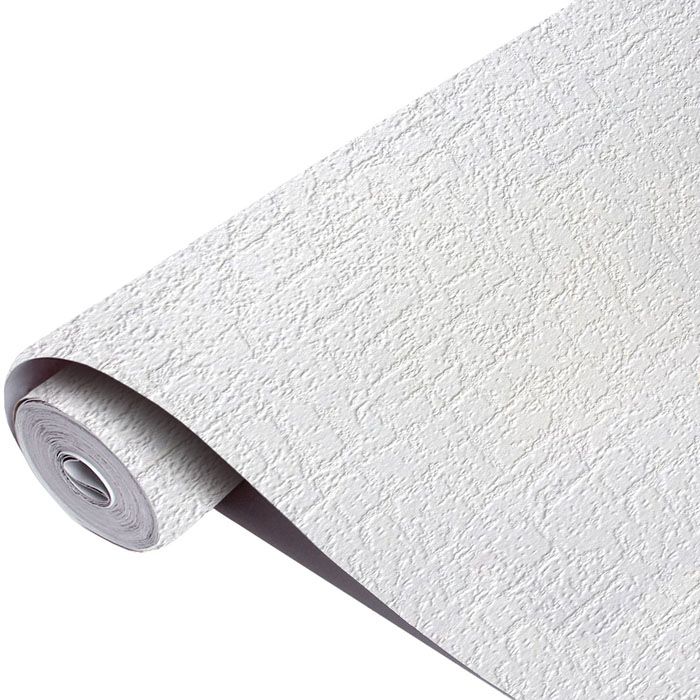
Non-woven wallpaper is practical and quite durable
Important! The non-woven coating is quite elastic, so it is chosen for houses that shrink (the possibility of cracking).
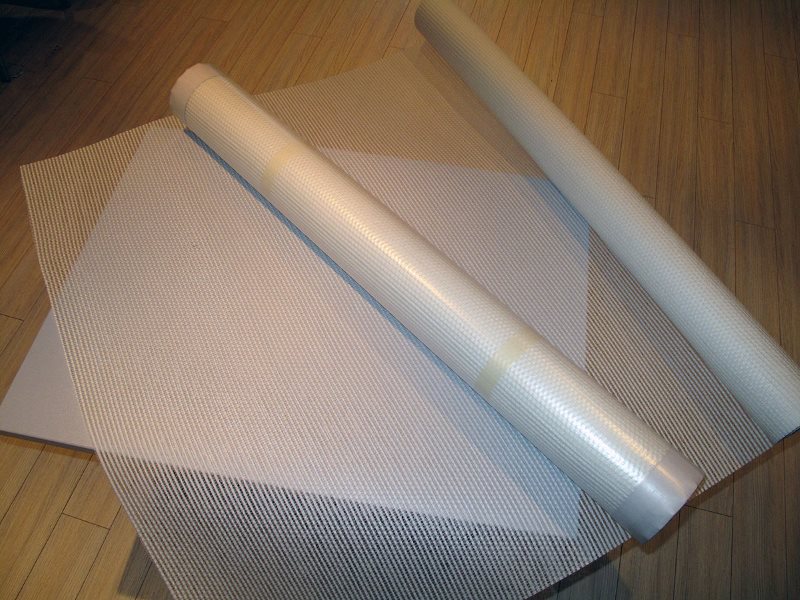
Fiberglass - the most expensive type of paint wallpaper, but they are worth it
The so-called cullet is an excellent basis for painting walls, they are made of fiberglass. A relatively new coating, but the wallpaper has already found a lot of adherents, thanks to its properties, including strength, durability and fire resistance.

Cullets are not burning, wear-resistant and can be successfully used even in the bathroom
Varieties of colors for wallpaper
Most varieties of interior dyes are compatible with roll coatings for painting:
- water soluble emulsions;
- latex paint;
- silicone based;
- acrylic paint;
- eco-paint based on natural resinous substances.
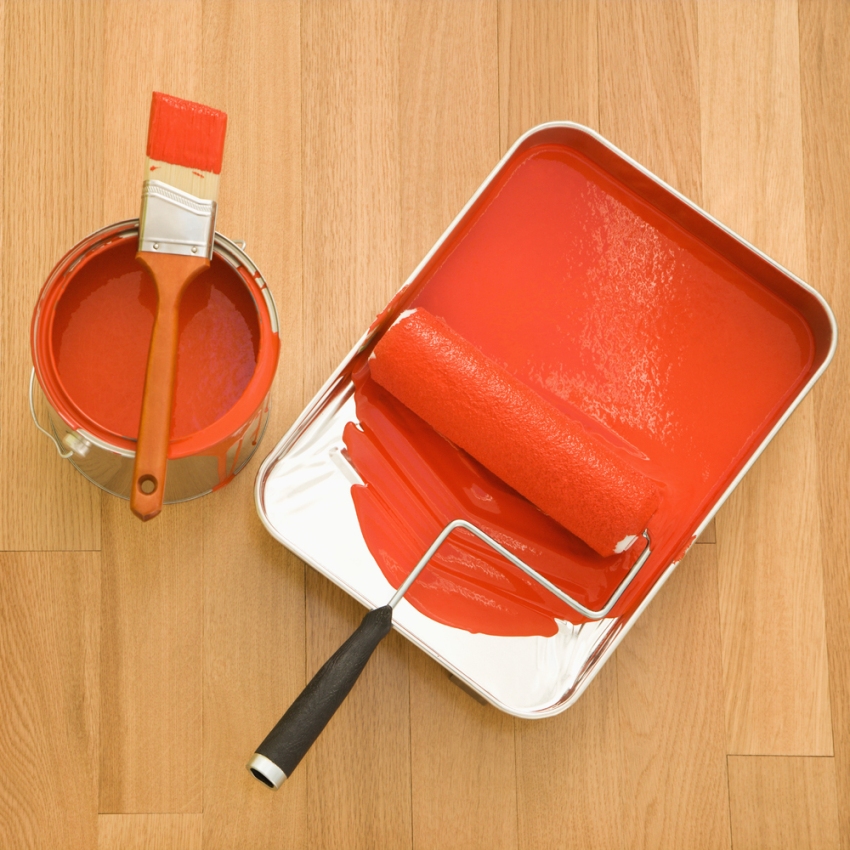
It is recommended to choose modern paints that are environmentally friendly and do not contain harmful impurities
Tip. In order not to make a mistake with the choice, read on the selected rolls which composition is the most compatible! Acrylic and latex compounds can be applied to fiberglass, and universal wallpaper glue is suitable as a primer.
For residential premises, choose light shades, for example, pink, lilac, lettuce, lemon, beige and pearl gray.
For painting use brushes and rollers with different nozzles - a variety is indicated on the rolls of wallpaper. In corners and inaccessible places after the roller, they are modified with a narrow paint brush. Each new layer is applied after complete drying, with the exception of water-based compositions.
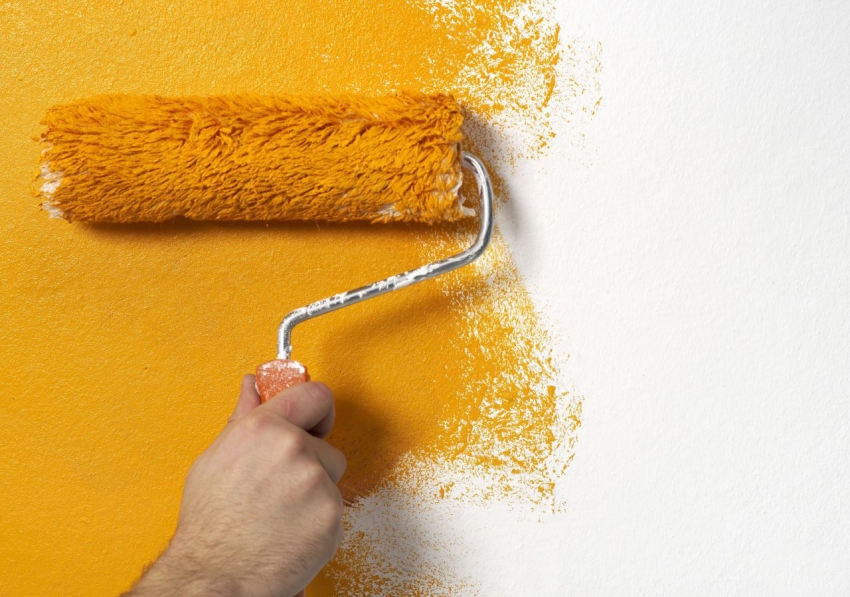
A medium-nap roller is best suited.
Inspirational photo examples will help determine the style of painting and interior decoration of walls in a private house or apartment.
Video on how to stick wallpaper for DIY painting
